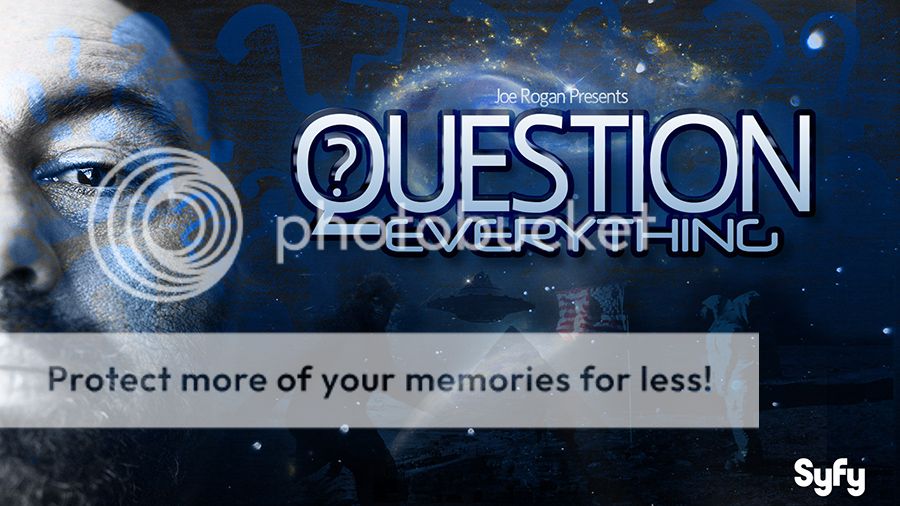The Best of OBSOLETE! Magazine
Highlights
from the first six issues of OBSOLETE! Magazine, along with original,
never before published material. Essays, fiction, poetry and artwork
from the newsprint tabloid published in the tradition of the
International Times, OZ, The East Village Other, The Berkely Barb, The
Chicago Seed, The Whole Earth Catalog, PUNK! and the other great
underground rags of days past….
This anthology features
an exclusive interview with Cory Doctorow, original fiction by the
late, great Mick Farren, poetry by Todd Colby, artwork by Hyena Hell and
much, much more!!
The book is ON SALE now, at obsolete-press.com!
Solar Ricardo

Tuesday, December 3, 2013
Wednesday, November 6, 2013
Propagating Forest Medicinals
A few snapshots of some wild yam and black cohosh I dug this week- my medicinal forest garden also includes American Ginseng, Comfrey, Blue Cohosh, Goldenseal and Bloodroot. For more on forest botanicals and their uses check out the Peterson Field Guide
Sunday, August 25, 2013
The KC Sports Writer's Suicide Blog, and His Final Prank
Read the Story at CNN.com
 Buried in this story is the fact that this guy
left GPS coordinates in his suicide post that sent 20 people running
around a park with shovels looking for his buried gold coin collection,
ala "It's a Mad Mad Mad Mad World". Great final prank- cheers to you,
Martin Manley.
Buried in this story is the fact that this guy
left GPS coordinates in his suicide post that sent 20 people running
around a park with shovels looking for his buried gold coin collection,
ala "It's a Mad Mad Mad Mad World". Great final prank- cheers to you,
Martin Manley.
 Buried in this story is the fact that this guy
left GPS coordinates in his suicide post that sent 20 people running
around a park with shovels looking for his buried gold coin collection,
ala "It's a Mad Mad Mad Mad World". Great final prank- cheers to you,
Martin Manley.
Buried in this story is the fact that this guy
left GPS coordinates in his suicide post that sent 20 people running
around a park with shovels looking for his buried gold coin collection,
ala "It's a Mad Mad Mad Mad World". Great final prank- cheers to you,
Martin Manley.
"...And it appears Manley
may have even played a practical joke to tweak the greedy in his long
farewell. In the section of his site detailing his collection of gold
and silver coins, a random set of GPS coordinates appears, along with a
tiny thumbnail image of Overland Park Arboretum & Botanical Gardens.
Police say about 20 people, some with GPS units, metal detectors and shovels, showed up at the gardens and started digging. But the joke was on them -- Manley's family told police he had given the gold away."
Friday, August 23, 2013
Semaphore Version of Wuthering Heights
Semaphore, Aldis Lamp. Morse Code–what are these arcane technologies of which you speak? Python knows....
Saturday, July 27, 2013
Sunday, July 7, 2013
Blue-Collar Bodhisattva of the Month: Joe Rogan!
 Comedian and no-neck philosopher Joe Rogan is a true blue-collar bodhisattva. His podcast, “The Joe Rogan Experience” is a rambling, weed-induced journey into science and pseudo-science, the arts (including mixed martial arts), current events, pop culture and techno-wierdness.
Comedian and no-neck philosopher Joe Rogan is a true blue-collar bodhisattva. His podcast, “The Joe Rogan Experience” is a rambling, weed-induced journey into science and pseudo-science, the arts (including mixed martial arts), current events, pop culture and techno-wierdness.Rogan is a master of geek machismo. He is an unapologetic bro and addresses his podcast listeners as “you dirty bitches”. He refers to violent historical figures as “totally gangster”. Yet, he quotes Terrance McKenna as easily as he quotes Anderson Silva's UFC stats, and is probably the nations most high profile advocate for the psychedelic experience.
From each of his weekly podcast guests, he extracts knowledge– not just a talking head interview, but digging deep and grokking their experiences and stories. He attacks learning with the same spirit that he pursues physical fitness- with focus, but with a playful attitude and an open mind. He is one part Timothy Leary and one part Jesse Ventura.
Later this month, Rogan launches a new TV series on the SyFy Network called “Joe Rogan Questions Everything”, in which he will dig into some of the old pseudo-science standbys like UFOs, Bigfoot and Conspiracy Theories. It is my hope that his inclusion of fellow comics and a healthy does of altered reality will allow this series to transcend other tinfoil-hat TV shows. I'm not sure basic cable producers are ready to let Rogan go as far down the rabbit hole as he does on his podcast, but it should be fun none-the-less.
So here's to you, Joe Rogan! Our first Blue-Collar Bodhisattva of the Month!
Wednesday, July 3, 2013
It's that time of the year- Dumpster-Diver Gardening!!
from ObMag#1...

We began dumpster-diver gardening sometime in the early 90's, when we came across a vendor at the Brooklyn Terminal Market tossing flats of slightly wilted bedding plants into the trash. Neither Wildgirl nor I were strangers to dumpster diving (a proud trash-picking tradition that is now fashionably know as "Freeganism"), and W.G. immediately hatched a plan for me to distract the shop owner by buying a bag of peat moss while she filled the trunk of her '74 Valiant with rescued greenery. "It wasn't so much about wanting the plants," she recalls- "It was about the waste. It was about the disposable society."
Fast-forward 10 years. We no longer live in New York. We have a small organic farm, and grow a lot of our own stuff. On a blistering July afternoon in Coralville, Iowa, I noticed one of the seasonal garden centers set up in a grocery store parking lot was breaking down for the season and again, they were dumpster-izing flat after flat of sad, leggy, brown and bolting tomato plants, squash, peppers, herbs, and flowers. A lot of the higher-priced organic and heirloom stuff was left behind. I took as much as the old Subaru GL would hold. What I have discovered in the last few years that throughout the Midwest (indeed, much of the country), is that huge numbers of plants get dumped, given away or sold for next to nothing sometime in the last part of June to first week of July. If timed properly, a pickup truck can be filled with blueberry bushes, roses, prairie plants, perennials, and lots and lots of vegetable plants for less than twenty bucks- often for nothing more than the price of gas. If you are a non-driver and really hard-core, you can do it with a cargo bike, shopping cart, hand truck, wheelbarrow or travois. The keys to success are timing, speed, and a modicum of stealth. Despite the fact that the stuff is being jettisoned, employees, particularly middle managers, can tend to flex-out on people who want their trash. In most cases, though, if you time your arrival properly, the peons who got exiled to the sweltering parking lot to haul the stuff to the dumpster are more than happy to have you lighten their load.

We began dumpster-diver gardening sometime in the early 90's, when we came across a vendor at the Brooklyn Terminal Market tossing flats of slightly wilted bedding plants into the trash. Neither Wildgirl nor I were strangers to dumpster diving (a proud trash-picking tradition that is now fashionably know as "Freeganism"), and W.G. immediately hatched a plan for me to distract the shop owner by buying a bag of peat moss while she filled the trunk of her '74 Valiant with rescued greenery. "It wasn't so much about wanting the plants," she recalls- "It was about the waste. It was about the disposable society."
Fast-forward 10 years. We no longer live in New York. We have a small organic farm, and grow a lot of our own stuff. On a blistering July afternoon in Coralville, Iowa, I noticed one of the seasonal garden centers set up in a grocery store parking lot was breaking down for the season and again, they were dumpster-izing flat after flat of sad, leggy, brown and bolting tomato plants, squash, peppers, herbs, and flowers. A lot of the higher-priced organic and heirloom stuff was left behind. I took as much as the old Subaru GL would hold. What I have discovered in the last few years that throughout the Midwest (indeed, much of the country), is that huge numbers of plants get dumped, given away or sold for next to nothing sometime in the last part of June to first week of July. If timed properly, a pickup truck can be filled with blueberry bushes, roses, prairie plants, perennials, and lots and lots of vegetable plants for less than twenty bucks- often for nothing more than the price of gas. If you are a non-driver and really hard-core, you can do it with a cargo bike, shopping cart, hand truck, wheelbarrow or travois. The keys to success are timing, speed, and a modicum of stealth. Despite the fact that the stuff is being jettisoned, employees, particularly middle managers, can tend to flex-out on people who want their trash. In most cases, though, if you time your arrival properly, the peons who got exiled to the sweltering parking lot to haul the stuff to the dumpster are more than happy to have you lighten their load.
Monday, May 27, 2013
The Only Blue Suit that Matters
 Republished from OBSOLETE! #4.
Republished from OBSOLETE! #4.
Style
is a product of it's era. Through most of history, fashion has been a
luxury of the well-to-do, and styles have reflected the morals and
values of the wealthiest in a society. Working class “finery”
has generally consisted of cheap knockoffs or homespun imitations of
the styles of the wealthy. In the 20th and early 21st
century however, the style has come up from the street, and no look
has been more consistently revisited than the blue suit.
I
speak not of the definitive navy blue wool business suit, that
timeless uniform of the bourgeois, but of the blue denim suit- jeans
and denim jacket. The “denim sandwich” or “Canadian tuxedo”
has been alternately loved and reviled by fashionistas and worn
unapologetically by cowboys, bikers, iron workers, farmers, punks,
metal heads and hillbillies for generations. Countless designers have
tried (and universally failed miserably) to improve on it- acid
washed, studded, cropped, tailored, distressed, dyed- yet nothing and
no one has managed to change the basic rule- only the traditional cut
and color will do, and only the wearer can make the blue suit cool.
For
those of us who grew up in the 60's and 70's, the blue suit is
something we have never been without. For much of our lives, the
uniform of the day has been the same timeless combination. Sometimes
it has been a statement, but in general, it's just what you wear- a
habit of sorts. Riding your Stingray at 12, delivering pizzas at 18,
playing in a punk band at 20, hanging drywall (or going to your
copy-editing job) at 30- it's always been there.You've slept in it,
then gone to work in it the next day. It kept your skin on when you
laid down your bike. Who fucking cares if it's “in”? Fashion
websites run articles with titles like “How to rock a denim jacket”
and “How to wear a jeans jacket without looking like a douchebag”.
All of them state that rule #1 is to not wear a denim jacket with
jeans. I say, rule #1 is, if you ARE a douchebag, you will look
like one in a jeans jacket.
For
fans of various musical genres, though, the blue suit is nothing
short of iconic. Lately it's the favorite of rappers and country
singers. It seems that the rappers generally know enough to stick
with dark blue and opt for the high dollar Levi's jacket. The country
singers (and American idol rejects) almost universally fall for the
1980's Jersey girl/Bon Jovi/Brighton Beach Russian housewife
designer-faded shit.
For
metal heads and punks, it has always been the warm-weather
alternative to leather- or the jacket you wore while saving up for a
biker jacket. If you see a photo of one of the Ramones not wearing a
biker jacket, they are probably in a denim jacket.
The
most important thing about choosing a blue suit nowadays is finding
items made in the USA. Levi's moved production overseas in the 90's
but they are currently advertising “Hand Made in the USA” jackets
and jeans. However, the price tag is an astronomical 210 bucks for a
jacket and 190 for a pair of 505s. Other US companies sell made in
the USA jackets and jeans in the $50-$75 range- Carhartt, Pointer,
All-American clothing and others.
The
history of denim is the history of America, and there is still
nothing so quintessentially American as blue jeans. Many a pair of
Levi's has been bartered away by broke Americans traveling abroad. As
America's star rapidly falls and the value of the dollar drops, the
blue suit is becoming once again as relevant for it's utilitarianism
as it's style. The stream of “Oakies” that brought the denim
“look” to California in the 30's did so not as a fashion
statement, but because it was the only suit of clothes that could
hold up to their circumstances. It is not hard t imagine that in the
new age of “austerity” that the blue suit may once again take
it's place as the “uniform of the day”.
Thursday, April 18, 2013
A Radical Anthropologist Finds Himself in Academic 'Exile'
From the Chronicle of Higher Education...
"Who's afraid of David Graeber? Not the dozens of D.C.-area residents who showed up on a recent night at the Martin Luther King Jr. Memorial Library to hear the anthropologist and radical activist talk about his new book, The Democracy Project: A History, a Crisis, a Movement (Spiegel & Grau). Aimed at the mainstream, the book discusses Mr. Graeber's involvement in the Occupy Wall Street movement and the idea that principles drawn from anarchist theory—a wholesale rejection of current electoral politics, for starters, in favor of groups operating on the basis of consensus—offer an alternative to our present polity, which he calls "organized bribery" (or "mafia capitalism")."
David Graeber is putting out some great ideas, and apparently he is being punished for it. Welcome to the American Dream, Dave!!
"Who's afraid of David Graeber? Not the dozens of D.C.-area residents who showed up on a recent night at the Martin Luther King Jr. Memorial Library to hear the anthropologist and radical activist talk about his new book, The Democracy Project: A History, a Crisis, a Movement (Spiegel & Grau). Aimed at the mainstream, the book discusses Mr. Graeber's involvement in the Occupy Wall Street movement and the idea that principles drawn from anarchist theory—a wholesale rejection of current electoral politics, for starters, in favor of groups operating on the basis of consensus—offer an alternative to our present polity, which he calls "organized bribery" (or "mafia capitalism")."
David Graeber is putting out some great ideas, and apparently he is being punished for it. Welcome to the American Dream, Dave!!
Friday, March 8, 2013
Friday, January 18, 2013
Linux MintPPC: New life for a G5
-->
I recently inherited an old Mac G5PowerPC from a friend who is an I.T. specialist at a college. They
were dumping a lot of old computers, and he was trying to find homes
for some of them before they went to recycling. It's sad that so many
perfectly functional machines get trashed every year- in a lot of
cases by people who really don't need a new machine.
Well, admittedly, the old G5 has it's
limitations, and there are no updates or new software that can run on
it since Apple abandoned the PPC at OS 10.5.8. It is a bare-bones
machine with no sound card, so I was wondering if it might not be of
use as a dedicated machine for a future home-built CNC machine or a
server for some yet-to-be-determined project, but in the mean time, I
decided to see how it would run under Linux.
I went for Ubuntu first, which was a
snap to install. Ubuntu is really newbie friendly and features a lot
of features familiar to Mac and Windows users. However, the version
for PPC turned out to be a little clunky, and lacked things like a
flash plugin and a few other things that make it less than ideal.
Next, I installed Linux MintPPC, a
version of the new Mint OS especially built for the Power PC. Wow.
Nice! This stripped down Linux distro runs FAST on the G5. I did have
some initial issues that required some forum surfing, some code
modification and a few restarts, but once it was properly configured,
it runs REALLY well. It comes with the usual suite of Libre Office
Suite, Ice Weasel browser (ice weasel-firefox, get it?) etc. Many
Windows programs will run under the WINE interface. So far, I have
not been able to run myCNC on it, but I'm working on that.
If you are like so many friends of mine
and have some sad old Macs sitting in the basement, you might want to
give Mint a try. For a friend, neighbor or family member with limited
resources, it would be a great gift. Or, it may give you a couple
more years out of your old machine. If Mac OSX Lion is any
indication, it may be time to take a break from your monogamous
relationship with apple and see some other operating systems.
Wednesday, January 9, 2013
A poem for city councils everywhere
Iowa City's continued efforts to destroy its historic downtown reminded me of this poem by my father, Robert Dana. He wrote it after attending a Coralville city council meeting, but I think it pretty much addresses how city politics works everywhere....
SELLING THE EARTH AND EVERYTHING ON IT
Last night, at the town council
meeting, what was it we were
trying to save? One council
member dozed; the other four
were glassy eyed; bored with
arguments they’d disposed of
months before. The air in the
brand new, stale, utilitarian
chamber smelled of done deals.
And anyhow, what do citizens
know? “We appreciate your
sincerity,” one member says.
“Yes, and you’ve brought a lot
of emotion to the issue,” says
another. “But you don’t under-
stand the figures.” The tongues
of the grass, though they be with-
out number, don’t speak to them.
They’ve had our figures. And
the grass has no rights. Trees
have no rights. The fat, base-
ball capped developer with his
shirt-tail hanging out
and suspect financing, and who
addresses council members
by first name, makes that clear.
“If there’s an alfalfa field
there now or a stand of trees—
anyone who buys from me
will know up front that that’s
not going to be an alfalfa
field or trees very long.
I bought this land to build on.”
So the deer in the meadow
along the nearby creek have
no rights, the creekwater no
rights, nor the air. No rights
for the hare or the hawk, red-
headed woodpecker, white-throated
sparrow; no rights for the fox.
And the farmland disappears
and then the farmer, and then....
If, as Paul Valery once wrote,
“Politics is the art of keeping
out of the process those who
will be most affected by it,”
then I guess you could say
we got politicked. And pretty good,
too. By day, young brokers roar
on the floor of the exchange.
By night, to our north, suburbs
metastasize. Circuit boards of
a trivial and pointless future.
As we file out—Goodbye, Goodbye
—across the frozen parking lot
to our separate cars, thank god
it’s dark and cold and winter’s
first hard snow is blowing.
meeting, what was it we were
trying to save? One council
member dozed; the other four
were glassy eyed; bored with
arguments they’d disposed of
months before. The air in the
brand new, stale, utilitarian
chamber smelled of done deals.
And anyhow, what do citizens
know? “We appreciate your
sincerity,” one member says.
“Yes, and you’ve brought a lot
of emotion to the issue,” says
another. “But you don’t under-
stand the figures.” The tongues
of the grass, though they be with-
out number, don’t speak to them.
They’ve had our figures. And
the grass has no rights. Trees
have no rights. The fat, base-
ball capped developer with his
shirt-tail hanging out
and suspect financing, and who
addresses council members
by first name, makes that clear.
“If there’s an alfalfa field
there now or a stand of trees—
anyone who buys from me
will know up front that that’s
not going to be an alfalfa
field or trees very long.
I bought this land to build on.”
So the deer in the meadow
along the nearby creek have
no rights, the creekwater no
rights, nor the air. No rights
for the hare or the hawk, red-
headed woodpecker, white-throated
sparrow; no rights for the fox.
And the farmland disappears
and then the farmer, and then....
If, as Paul Valery once wrote,
“Politics is the art of keeping
out of the process those who
will be most affected by it,”
then I guess you could say
we got politicked. And pretty good,
too. By day, young brokers roar
on the floor of the exchange.
By night, to our north, suburbs
metastasize. Circuit boards of
a trivial and pointless future.
As we file out—Goodbye, Goodbye
—across the frozen parking lot
to our separate cars, thank god
it’s dark and cold and winter’s
first hard snow is blowing.
Robert
Dana
Subscribe to:
Comments (Atom)









